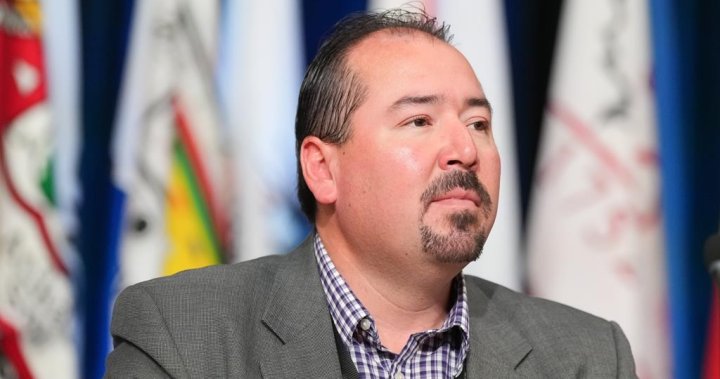Chiefs in Ontario have approved a $47.8-billion child welfare reform agreement with Canada, marking a significant step towards reforming colonial systems that have impacted Indigenous communities. Regional Chief Abram Benedict praised the support of chiefs in the province, emphasizing the need to address historical injustices and improve the welfare of First Nations children. The deal, which was reached in July after years of advocacy and litigation, aims to address the discrimination faced by Indigenous children who were removed from their families and placed in foster care due to inadequate funding for on-reserve child welfare services.
The agreement was the result of collaborative efforts between the Chiefs of Ontario, the Assembly of First Nations, Nishnawbe Aski Nation, and the government of Canada. It represents a commitment to redress the systemic issues that have marginalized Indigenous communities for generations. The reform is a crucial step towards upholding the rights and well-being of First Nations children, who have often been separated from their families and culture due to limited resources and support. The approval by chiefs in Ontario sets the stage for a nationwide vote on the agreement at a special chiefs assembly in Calgary, where leaders from across the country will convene to discuss the proposed reforms and their implications for Indigenous communities.
The child welfare reform agreement signifies a significant milestone in the ongoing efforts to address the legacy of colonialism and discrimination faced by Indigenous peoples in Canada. By prioritizing the needs and rights of First Nations children, the agreement signals a commitment to reconciliation and healing within Indigenous communities. The decision by chiefs in Ontario to support the agreement reflects a collective desire to create a more just and equitable society that respects the inherent rights and dignity of all Indigenous peoples. The reform is a testament to the resilience and determination of First Nations leaders who have long advocated for change and justice for their communities.
The historical significance of the child welfare reform agreement cannot be overstated, as it represents a transformative shift towards a more inclusive and culturally sensitive approach to child welfare in Indigenous communities. By acknowledging and addressing the systemic barriers that have perpetuated inequalities and injustices, the agreement lays the groundwork for a more equitable and compassionate child welfare system that prioritizes family preservation and community support. The partnership between Indigenous leaders and the government of Canada underscores a shared commitment to reconciliation and collaboration, signaling a new era of respect and recognition for the rights and sovereignty of Indigenous peoples.
Moving forward, the implementation of the child welfare reform agreement will require sustained effort and collaboration between all parties involved to ensure its successful outcomes. This will entail meaningful engagement with Indigenous communities, transparent communication, and ongoing support to address the longstanding challenges and barriers that have hindered the well-being of First Nations children and families. By centering the voices and experiences of Indigenous peoples in the reform process, leaders can build a more responsive and culturally appropriate child welfare system that upholds the rights and dignity of all children, regardless of their background or circumstances. The commitment to reforming colonial systems and advancing justice and equity for Indigenous communities is a vital step towards healing historical wounds and building a more inclusive and compassionate society for future generations.
In conclusion, the approval of the $47.8-billion child welfare reform agreement by chiefs in Ontario marks a significant milestone in the ongoing efforts to address historical injustices and discrimination faced by Indigenous peoples in Canada. The collaborative process of reaching the agreement reflects a commitment to reconciliation, healing, and justice within Indigenous communities, as well as a recognition of the inherent rights and dignity of First Nations children and families. The nationwide vote on the agreement at the upcoming special chiefs assembly in Calgary will provide an opportunity for leaders from across the country to come together and discuss the proposed reforms, setting the stage for a transformative shift towards a more equitable and culturally sensitive child welfare system that upholds the well-being and rights of all Indigenous peoples.













